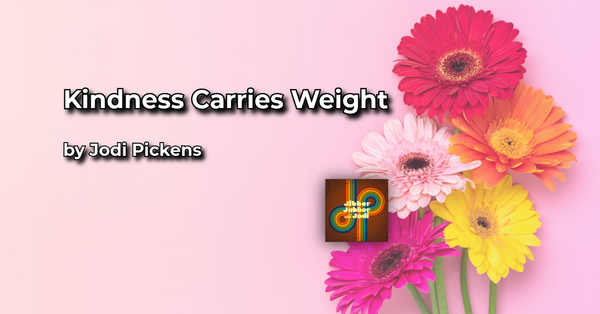Where The Sidewalk Begins

I was about eleven when I first wandered into the whimsical, wonderful world of Shel Silverstein. It was summertime, and my sister and I were on one of our regular adventures to spend a time with our grandparents, a tradition we loved. These trips often meant pinballing between the homes of aunts and uncles, each visit bringing a new batch of cousins and fresh mischief to get into.
On this particular day, we found ourselves at Aunt Linda’s house. That meant three cousins, a sunny backyard, and the promise of pure, unstructured fun. I was the oldest in this cousin crew, but age never got in the way of nonsense. We were ready for a day of grass-stained knees and general goofiness.
And yet… I didn’t go outside.
Somewhere in the quiet moments before the chaos of play began, I noticed a bookshelf. Whether my aunt pointed it out or I found it on my own is lost to memory. What I do remember, vividly, is the moment my hand reached for Where the Sidewalk Ends. There was another Silverstein title nestled nearby, but this one called to me.
I was already a reader by then, nose deep in Nancy Drew and history books, but this was different. The book felt oversized, thick, and strange in the best way. I opened to the first page, and just like that, the day outside disappeared.
Each poem was a little door. I turned the pages faster and faster, words spinning wild stories and nonsensical truths. I was laughing. I was thinking. I was spellbound. Outside, cousins yelled and played in the sun. Inside, I was galloping through Silverstein’s universe with “Ickle Me, Pickle Me, Tickle Me Too.”
Aunt Linda checked on me now and then. I barely looked up. Eventually, she pried the book from my hands for some fresh air, but I came back to it the moment I could. I read for hours. Reread. Memorized. I still remember the ones that lit me up like lightning bugs in a jar:
• Sarah Cynthia Sylvia Stout Would Not Take the Garbage Out
• Poem on the Neck of a Running Giraffe
• Peanut Butter Sandwich
• Listen to the Mustn’ts
• The Land of Happy
• If I Had A Brontosaurus
• Ickle Me, Pickle Me, Tickle Me Too
• Where the Sidewalk Ends
The very next day, I plucked A Light in the Attic off the same shelf. Same story, I devoured it.
Looking back, I think those books didn’t just entertain me. They changed me. Or maybe they woke up a part of me that was waiting to be invited out. They taught me that imagination is boundless, that stories can rhyme and dance and still be deeply wise. That silliness isn’t a distraction from learning. It is a kind of learning.
Years later, my aunt and I still talk about that day. She laughs at how I disappeared into those pages, how completely I gave myself over to those poems. And of course, she would notice. She spent her life teaching children, not just by profession but by nature. She just gets kids. It’s a quiet kind of magic, one she now brings to her grandchildren.
Not long ago, she sent me a photo of another Silverstein poem, Ations.
Ations
by Shel Silverstein
If we meet and I say, “Hi,”
That’s a salutation.
If you ask me how I feel,
That’s a consideration.
If we stop and talk a while,
That’s a conversation.
If we understand each other,
That’s communication.
If we argue, scream, and fight,
That’s an altercation.
If we apologize,
That’s reconciliation.
If we help each other home,
That’s cooperation.
And all these actions added up
Make civilization.
(And if I say this is a wonderful poem,
Is that exaggeration?)
It’s simple, sure. But also a little genius. It walks you through the small steps of human connection, from hello to harmony, and somehow builds a society along the way. In a world so often obsessed with grand gestures and dramatic change, Silverstein reminds us that the real magic is in the everyday actions… a greeting, a kindness, an apology, a helping hand.
The timing of that text from my aunt wasn’t lost on me. That poem is a gentle nudge, a whisper really, about how we treat each other. About how we could treat each other. It starts with a conversation. Maybe even just a hello.
Silverstein’s poems have stayed with me like lucky charms tucked in my pocket. They didn’t just entertain me that summer. They shaped me. They gave me permission to be silly, curious, and completely myself. And they still whisper to me… keep imagining, keep asking questions, keep being kind.
We all need something that brings us back to who we are. For me, it was a book on a shelf on a summer day, and a boy who would not take the garbage out.
Find your poem. Find your sidewalk.
And don’t be afraid to follow it past the edge.





